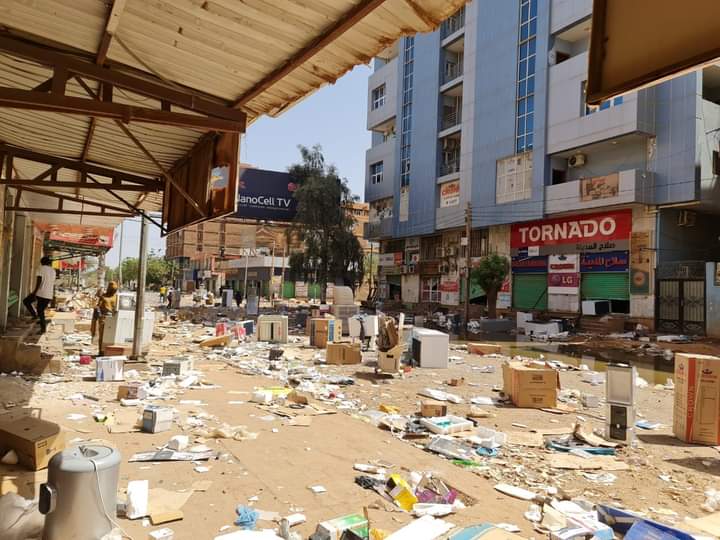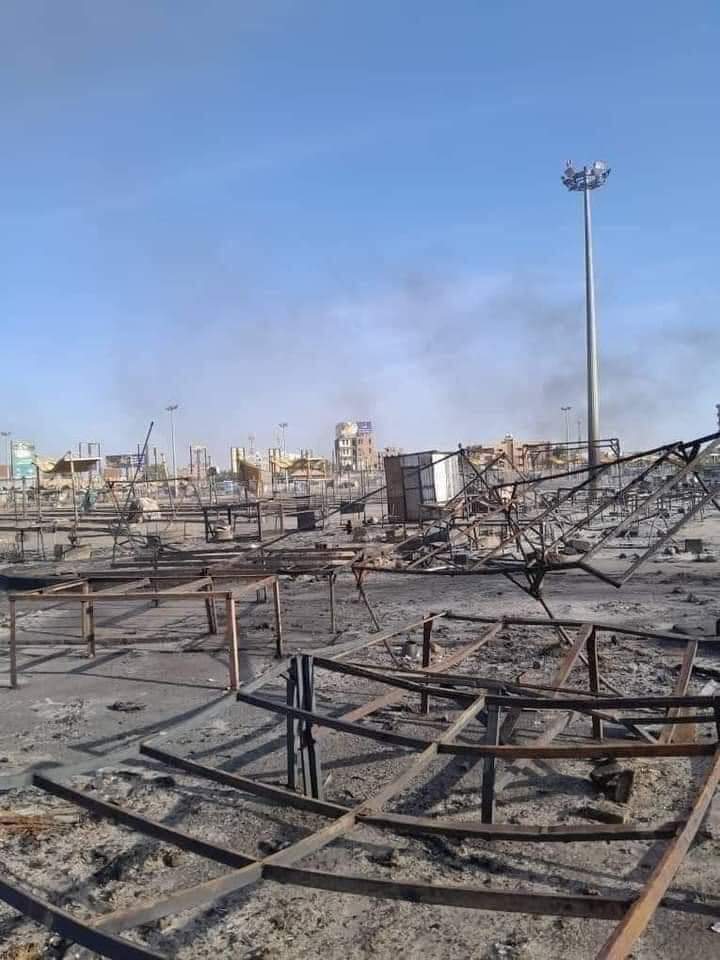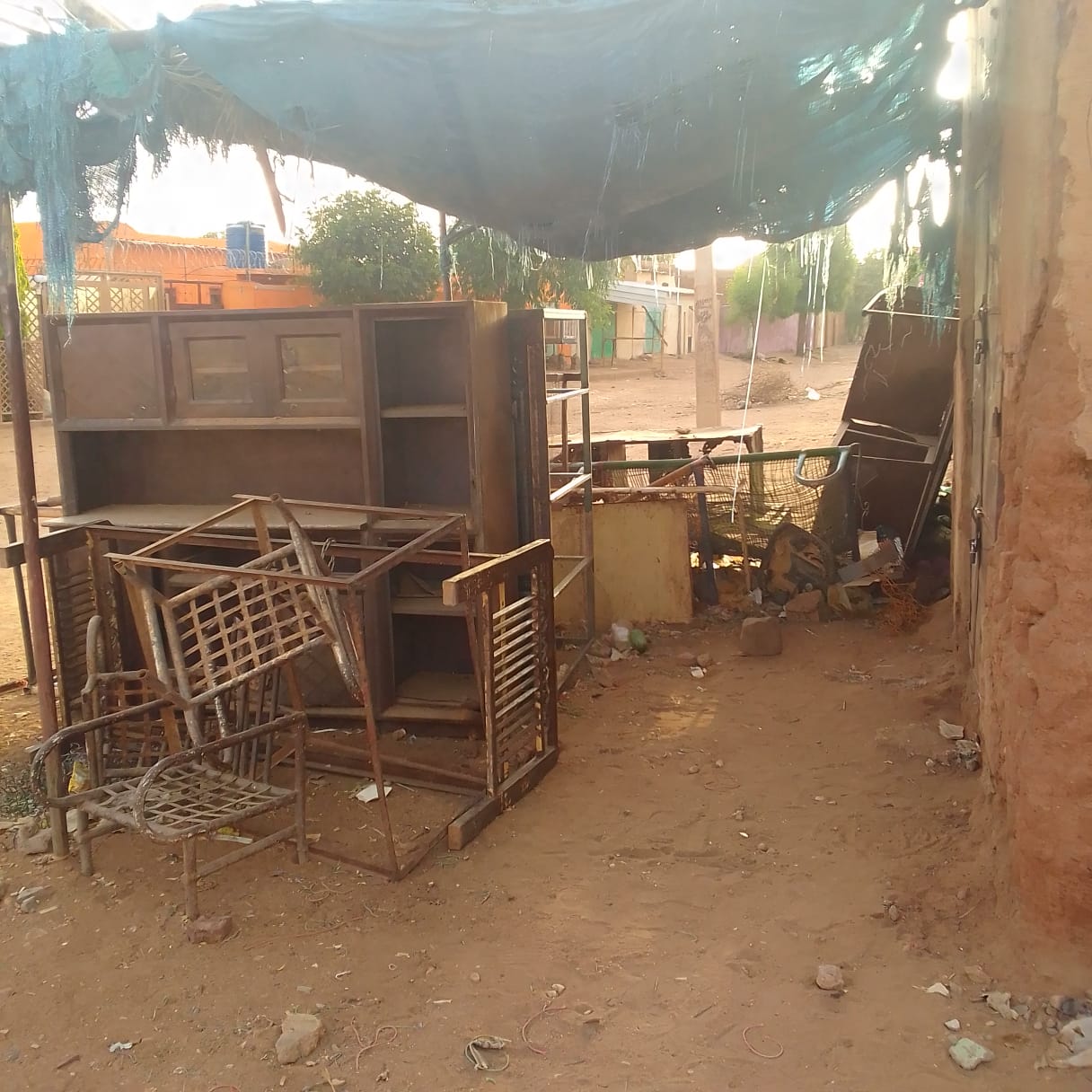
Maoatinoon Survey: Variations in Compliance with Ceasefire
Khartoum - Maoatinoon
The Kingdom of Saudi Arabia and the United States, as mediators, called on the conflicting parties in Sudan to continue negotiations to extend the specified ceasefire, which ends on the evening of Monday, May 29. The US Embassy in Khartoums Facebook account stated that a partial extension would facilitate the urgent delivery of needed aid to the Sudanese people. The mediators urged the conflicting parties to adhere to their commitments under the short-term ceasefire and to maintain their previous commitment to protecting civilians.
Maoatinoon website conducted a survey to gather the opinions of several citizens from various areas of the capital, Khartoum, regarding the extent of compliance with the ceasefire and how it has affected them.
Gaza Neighborhood
Ehsan Abdul Aziz told Maoatinoon that the sounds of bombers, gunfire, and aircraft have not ceased in their area, the Gaza neighborhood, located next to the artillery camp in central Khartoum. She added that the battle on Tuesday was a full-scale conflict, involving all types of heavy weapons and aerial bombardment that covered the entire vicinity of armored vehicles, reaching neighborhoods like Al-Hilla Al-Jadida and Abu Hamama. Ehsan stated that shells and projectiles fell on a large number of houses and residential buildings.
She mentioned that they decided to leave the area after enduring 45 days of continuous clashes.
Haj Youssef Suburb
Ali Al-Tahir said that in Haj Youssef suburb, located east of the Nile, the ground-to-air dual and quad anti-aircraft guns fell silent, and the flights ceased during the recent truce. He mentioned that only the sound of surveillance and aerial survey aircraft remained, passing by occasionally, and everyone, including children, would follow their movements. Al-Tahir added that children, amidst them, have become accustomed to the culture of combat aircraft and can now distinguish between different types of planes. He also noted that the sounds of light weapons like Kalashnikovs did not cease during the ceasefire, and the residents would hear intermittent gunfire during daylight hours, which intensified at night.
He explained that the pursuit of thieves, which used to take long hours, has become routine, and Souk 6 in the heart of Haj Youssef suburb has witnessed unfortunate events more than once. He pointed out that the ceasefire helped clean the area from criminals and thieves.
Regarding the movement of citizens, Ali stated that during the short ceasefire between the armed forces and the Rapid Support Forces, the Unity Market and adjacent markets such as Market 13, Market 9, and Market 24 in the far north of Haj Youssef witnessed a high turnout of citizens who came out to secure their essential needs. Some thieves took advantage of the opportunity and displayed their stolen goods on the outskirts of Souk Sitta and Souk 24, where stolen items were promoted and sold at low prices.
Despite the absence of violations in the ceasefire in the area of Haj Youssef, which stretches from Al-Nasr neighborhood in the south to Al-Shaqlah in the north, it did not have any impact on the citizens as they continued their lives normally as they were during the days of the fighting.
Bahiram Abdel-Monem points out that the latest ceasefire is better than its predecessors, except for sporadic clashes that erupted in the center of Khartoum at the Central Bank headquarters, Sudan University, medical supplies, and Freedom Street. He said that the East Nile region witnessed stable conditions, especially in the neighborhoods of Haj Youssef, as the area witnessed a steady movement of citizens and an increase in passenger vehicles. There was also relative overcrowding in the markets. He explained that citizens were able to visit hospitals and health centers to receive treatment in one street - Haj Youssef - and the Green Valley area.
Omdurman
Ahmed told Maoatinoon that the ceasefire this time was somewhat better than its predecessors, despite some violations, whether by air or ground clashes. He pointed out that the main criticism of this ceasefire is that the stipulated measures were not implemented, such as the evacuation of hospitals and citizens homes, as well as the delivery of aid to the affected people. He added, We did not witness any clashes in our area, but we saw Antonov and MiG aircraft flying without targeting any sites on the ground.
Halfaya Al-Malik
Assmei Bashari considered the ceasefire signed in Jeddah between the warring parties not successful as a humanitarian ceasefire, despite its relative success according to international standards. He said that the most important points of the ceasefire are working on the restoration of basic services such as water, electricity, and the operation of hospitals, which did not happen. He said, I reside in Halfaya Al-Malik, north of Khartoum Bahri. Drinking water has been cut off since the outbreak of the war until now, and health centers, stores, and local markets are closed.
Bashri told Maoatinoon that although military operations have decreased compared to before the ceasefire, the area witnessed military aircraft flying, the sound of ground anti-aircraft guns and gunfire, and the dominance of the Rapid Support Forces over checkpoints in the area, as well as the absence of security, where looting of houses and shops continues.
He pointed out the shortcomings of the ceasefire, especially in terms of providing sufficient information and establishing clear mechanisms for its implementation, not just monitoring. He said, There were no designated safe corridors for citizens to receive basic services or to leave safely, and the governments failure was evident in benefiting from the ceasefire, restoring basic services, and achieving the minimum level of services.
Firdous Area
As for the Firdous area overlooking Al Sittin Street, Abdel Salam tells Maoatinoon that thankfully the area is safe due to its distance from conflict areas such as camps, officers residences, and government or military headquarters. He mentioned the presence of Rapid Support Forces checkpoints in the area, where questions are asked to owners of vehicles and rickshaws, and transportation is available. Abdel Salam complained about the exorbitant price increases, while some grocery stores and bakeries remained open.





